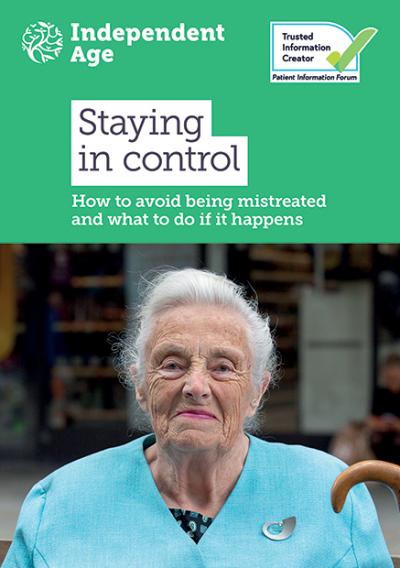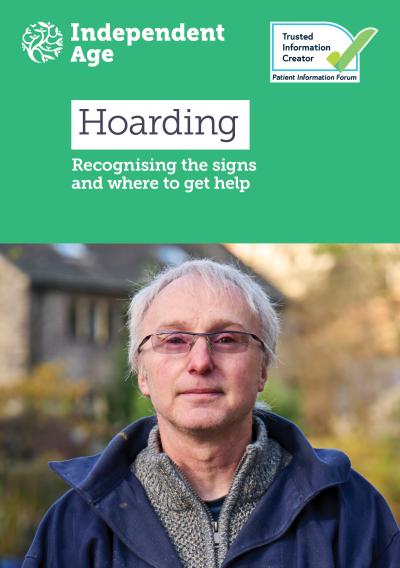Related publications

Staying in control

Abuse, harm and neglect are rare but can happen. If you think someone you know is being hurt, there is action you can take.
Abuse, harm or neglect may be a single or repeated act which causes pain or distress, or a failure to meet someone’s needs.
There are many different types of harm:
People responsible for harm are often taking advantage of a special relationship. They could be a friend or family member or a paid care worker.
It’s not always easy to recognise when someone is being hurt or neglected. They may be reluctant to talk about it or make excuses for why they’re short of money or don’t have their medication, for example.
Signs may include:
If a friend or family member who is acting as an unpaid carer is reluctant to get help from social services or medical professionals, that can also be a sign of neglect – even if they didn't intend to cause any harm.
At times, someone may put their health or wellbeing at risk if they’re unable to care for themselves or their home. Self-neglect might include:
They can choose how they want to live and they might not want help, but professionals may have to get involved if there is a risk of harm to them or someone else – for example, if their home is a fire risk.
If you suspect that someone is being mistreated or neglected, start by talking to them in private. Gently mention your concerns – perhaps they seem withdrawn or afraid of their carer. They may be reluctant to talk if they’re afraid of the situation getting worse or they’re being threatened by someone.
Stay calm and tell them that the harm isn’t their fault and that help is available. They may be afraid they’ll lose their right to care and support, so reassure them this is not the case.
Do not promise the person that you won’t tell anyone else. If they or others are at risk, you may need to get help for them.
Ask the person what they’d like you to do. You could offer to get help but it’s important to listen to what they want. Give them time to think about what they want to do next.
For advice on reporting abuse, harm or neglect, contact Hourglass. You can call their confidential helpline on 0808 808 8141. You could also call our Helpline and arrange to speak to an adviser.
Many councils have a dedicated team that you can call to raise concerns about a vulnerable adult at risk of abuse, harm or neglect. This is sometimes called the safeguarding team. Or you can contact their local council’s adult social care team to report your concerns.
If you think someone is at immediate risk of harm or needs urgent protection, call 999 for the police and/or an ambulance. If the person isn’t in immediate danger, you can call 101 to raise any safeguarding concerns.
If you feel a crime has been committed you can also report your concerns to the police. You do not need the person's consent to report a crime.

For confidential advice on reporting abuse, harm or neglect, contact Hourglass.
For contact details of the person’s local council social services team, go to gov.uk/find-your-local-council
By calling Independent Age's free and impartial Helpline, you can get information and advice from one of our friendly advisers, or order our free guides.